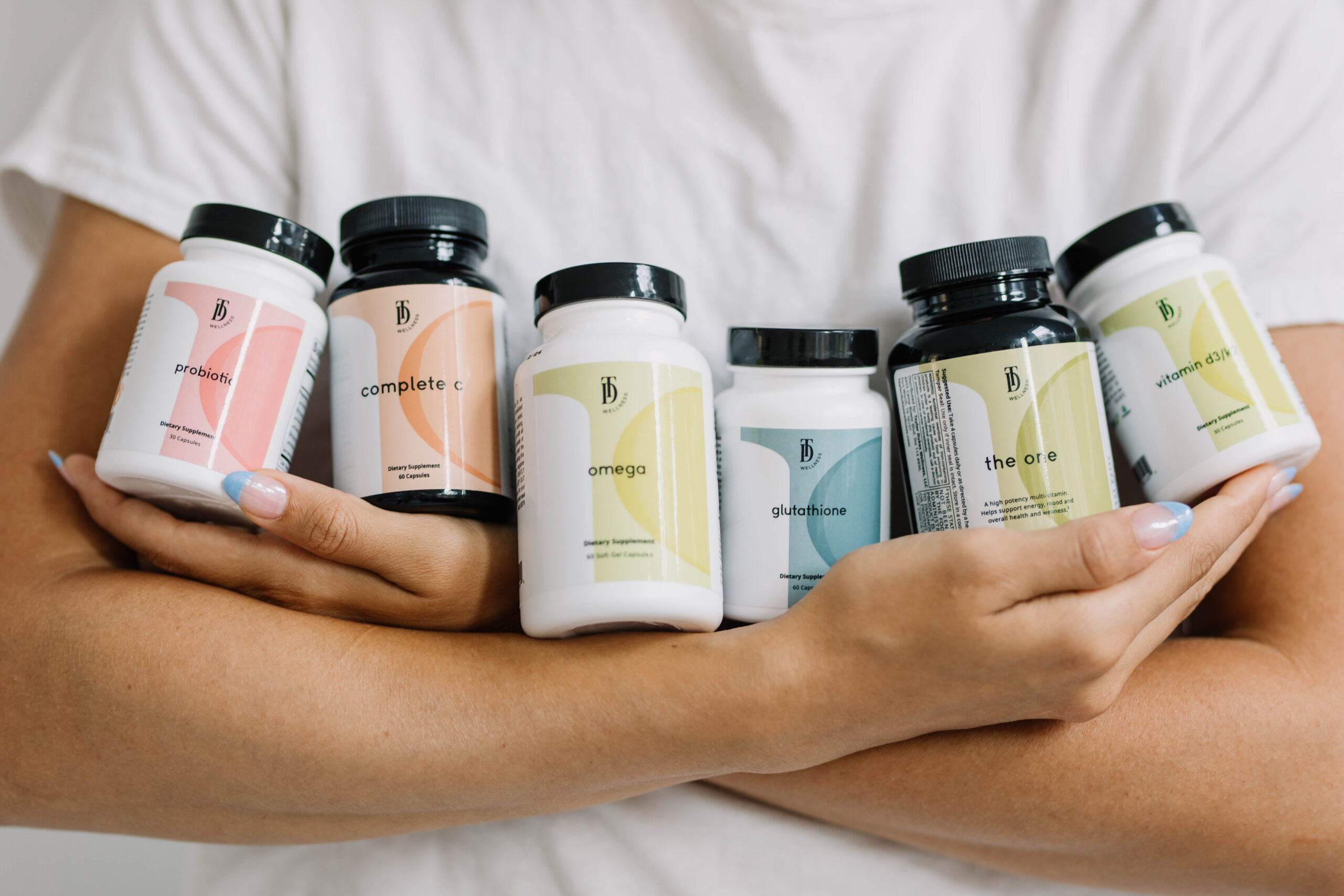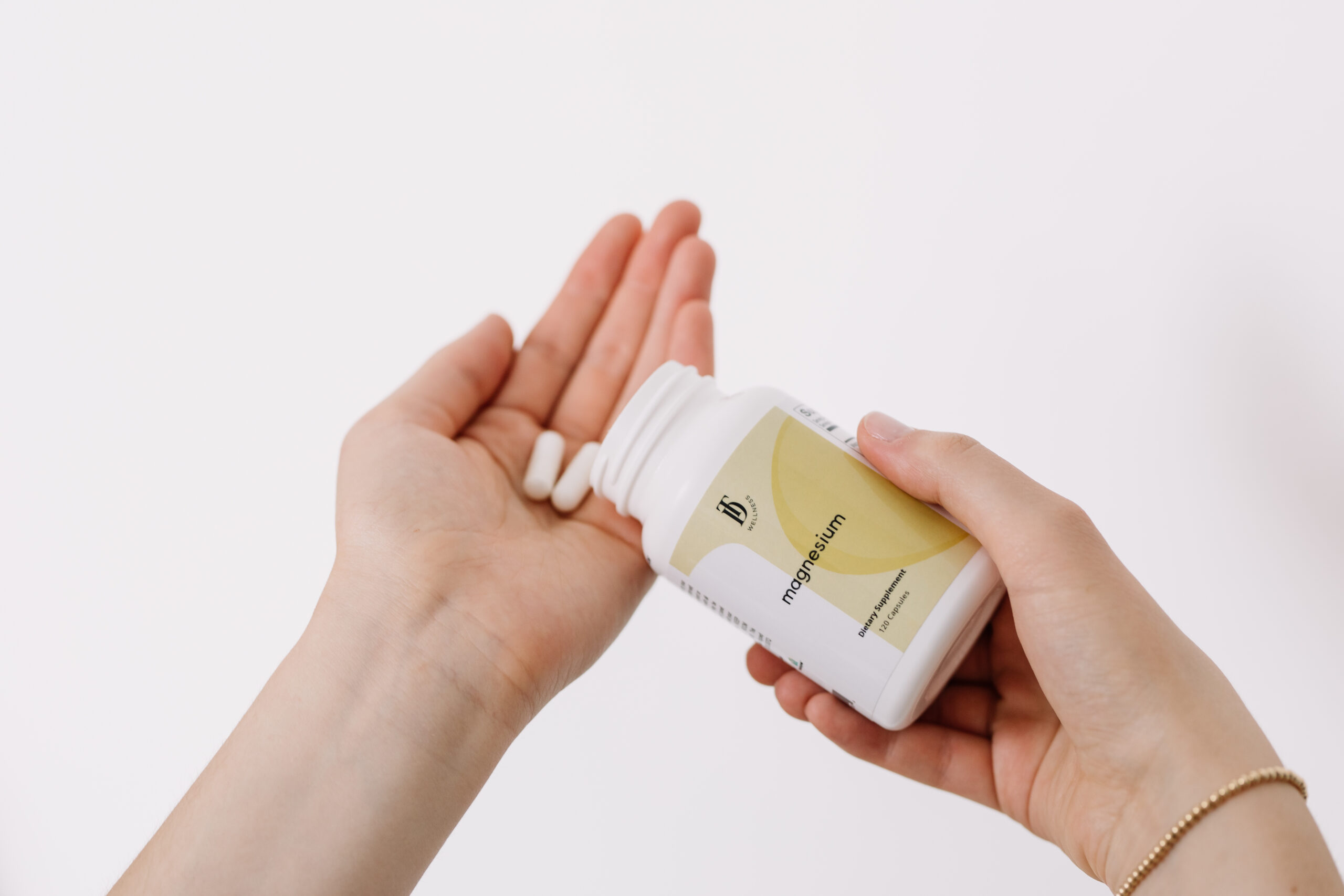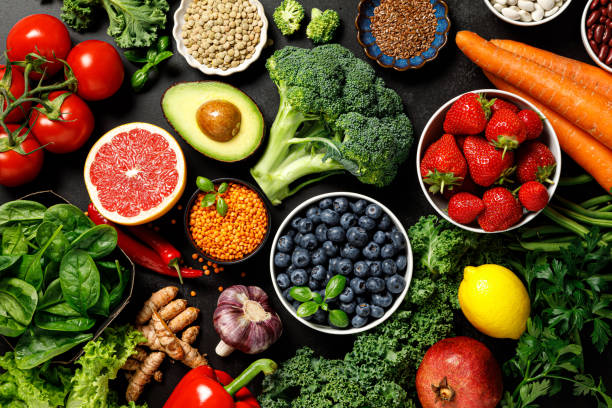Stevia Leaf 101

You have likely seen it in everything from yogurts to beverages, baked goods to better desserts. But let’s do a little stevia 101 so you can learn more about the plant (yes, plant!) that is known for its blood sugar-friendly sweetening effects. We’ll also address the controversies around if it’s really a friend or foe to our health.
What is stevia?
Stevia, a natural sugar substitute from the leaves of the Stevia rebaudiana plant native to South America, is made by extracting steviol glycosides from the plant and converting them into a powder or liquid. Stevia has a highly concentrated sweetness, requiring only a small amount to match the sweetness of sugar.
So you may be wondering if stevia is any different than eating a plant? While stevia can be utilized in whole plant form by crushing its leaves (fresh or dried), this method of consumption is not common. More commonly, steviol glycoside extracts (liquid or powder) are used for consumption in foods and beverages.
Think of vanilla extract to vanilla beans as stevia glycoside extracts are to the stevia plant. Stevia sweeteners are an extract rather than a whole plant.
What’s the background check on stevia?
Ancient civilizations have used stevia for centuries to sweeten yerba mate and other teas, and countries like Japan have been producing it commercially since the 1970s as an alternative to artificial sweeteners.
While the U.S. FDA approved stevia glycoside extracts in 2008 and the European Union approved stevia sweeteners for usage in 2011, it’s surged in popularity recently due to being calorie-free and having minimal impact on blood sugar.
Is stevia healthy? Are there concerns?
Stevia is a widely used and loved sweetener in the wellness space for a variety of reasons:
- No calories or carbohydrates
- Little to no impact on blood sugar, making it particularly beneficial for those with diabetes, obesity, or struggling with blood sugar regulation (source)
The greatest concerns I hear regarding stevia consumption are misconceptions surrounding its interaction with the gut, hormones, and also the type of processing it undergoes before hitting shelves. After delving deep, here’s what I have to say:
Regarding the gut…
- A 2024 study looking at stevia consumption over the course of 12 weeks found that large-scale changes in the gut microbiota were not apparent, and, therefore, the data suggests that stevia does not significantly impact the gut microbiota (source).
- It is important to note that many foods and beverages are formulated with a combination of non-nutritive (no nutritional value) and other sweeteners. This means that both stevia and sugar alcohols or other sweeteners could be used together. If digestive discomfort, such as gas and bloating, is experienced after ingestion, it is worth it to consider all sweeteners consumed. Especially because digestive discomfort after consumption of sugar alcohols is well documented, and these are often added to stevia!
- More research is needed, but a 2019 study found that stevia might even have favorable effects on the gut microbiome, especially for obese populations!
Regarding hormones…
- Whether it is research on the intersection of stevia and sex hormones or stevia and growth hormones, there have been no conclusive and consistent findings to show that stevia usage negatively affects our hormones.
- While one argument against stevia is that it has a similar structure to steroids and therefore may be able to mimic steroid behavior, the amount of stevia needed for it to assume the qualities and behavior of a steroid is beyond what we might reasonably consume. It would require therapeutic dosing. It’s important to note that TDW products do not contain high amounts of stevia. We aren’t “dosing,” but simply using it as a cleaner sweetener.
Regarding processing…
- The leaf of stevia is the most widely used part of the stevia plant. The production process of stevia includes harvest, dehydration, grinding and extraction, isolation and purification. This type of water extraction process is one that has been used safely for decades. With that said, stevia processing can vary widely from one company to another. Some companies use multiple chemicals and added steps, while others do not. TDW stevia uses more minimal processing….
Quality and info on TDW stevia specifically
TDW stevia is organic, clean, and processed with the highest standards. The organic stevia used in TDW products goes through the following process: The stevia comes from whole, organic stevia leaves which are dehydrated. The steviol glycosides are then harvested through a water extraction process (think about it as steeping tea leaves in hot water). No other solvents – just water! And they are standardized to Reb A. The stevia extract then goes through a filtration and drying process before being used in our products. The end product is an organic stevia leaf extract.
Moral of the story, it’s important to know how the stevia you’re consuming is processed, as that can drastically affect the “healthiness” of the stevia.
FAQs:
Some of the FAQs we’ve received regarding stevia are listed below, and we hope you find this helpful as a quick reference!
- Why do you have stevia in your products?
We chose stevia for its ability to add subtle sweetness without spiking blood sugar or increasing insulin secretion. While I (Taylor) believe stevia is a healthier sweetener and personally consume it, I understand not everyone shares this preference which is why we do have several protein powders that are stevia-free: Unflavored Protein (no flavors or sweeteners), Strawberries & Cream Protein (only sweetened with organic monk fruit), and Pumpkin Spice Protein (seasonal – only sweetened with organic monk fruit).
- Stevia tastes too strong (too sweet, too obvious, etc.).
As with all foods, stevia is subject to personal preference. Some people find products to have too much sweetness and others not enough. TDW Bone Broth Protein could be described as subtly sweet. Not overwhelmingly so.
- Stevia hurts my stomach.
Some stevia products contain added sugar alcohols, which can cause unpleasant symptoms like indigestion, cramping, and bloating when consumed. Please note that TDW products do not have added sugar alcohols along with stevia.
- My doctor said I shouldn’t have stevia.
Always listen to your healthcare practitioner.
- Is this stevia safe (to take while focusing on cancer prevention, health protocols, etc)?
We absolutely believe so. I (Taylor) drink my stevia-sweetened TDW products and I give them freely and confidently to my kids, my husband, family, and friends. I am personally on a cancer healing and prevention journey, and many of my friends are on different types of healing protocols such as autoimmune, gut, etc.
- Is stevia considered sugar?
No, stevia is a sugar alternative. It does not cause a spike in blood sugar and insulin as sugar does, which is a large part of why we chose this sweetener for TDW products.
Share This Post:
Your Wellness Deep Dive
- Be the first to learn about new healthy living resources, blog posts, and exclusive TDW offerings by getting on my insider list.
- Find healthy living products with ingredients you can trust – the same ones I personally use for myself and my family – in the TDW Shop. Check out our protein powders, electrolytes, supplements, and more!
- Get personalized support through the TDW Community. When you become a member, you get access to functional medicine expertise from me and my team, functional medicine lab testing and 1:1 consults, a digital library of exclusive wellness content, live monthly Q&As with me, and so much more!
YOU MAY ALSO LIKE:
Helping you get your gut right, improve energy, boost immunity, balance hormones, sleep better and look + feel your best
DISCLAIMER
PRIVACY POLICY
TERMS + CONDITIONS
ACCESSIBILITY
© 2025 Taylor Dukes Wellness
LEARN
SHOP
ABOUT
TDW Community
Free Guides
Blog
TDW Store
Fullscript
About Taylor
Press
Contact
COOKIE POLICY
SITE CREDIT
Trusted Products



